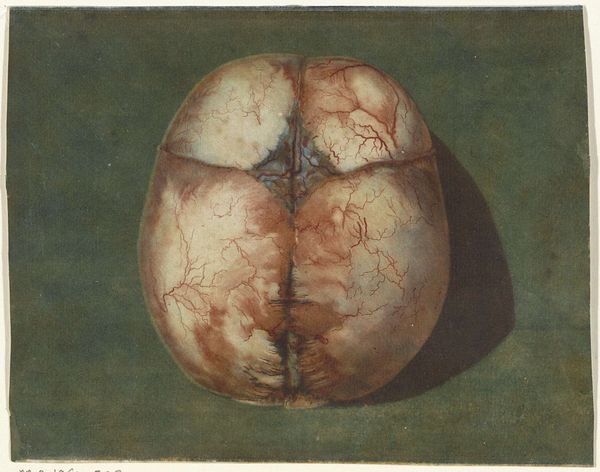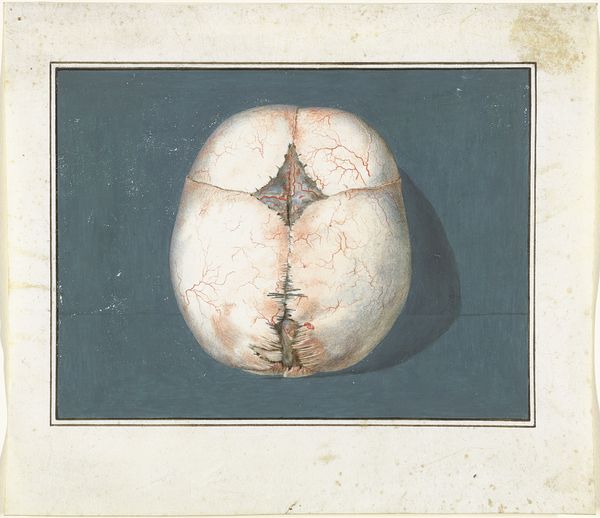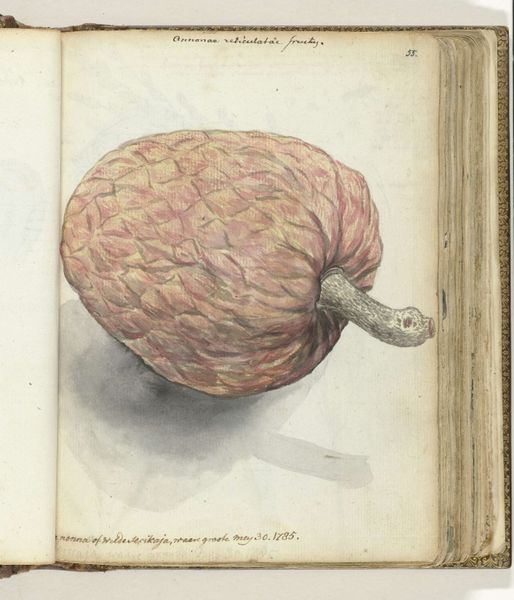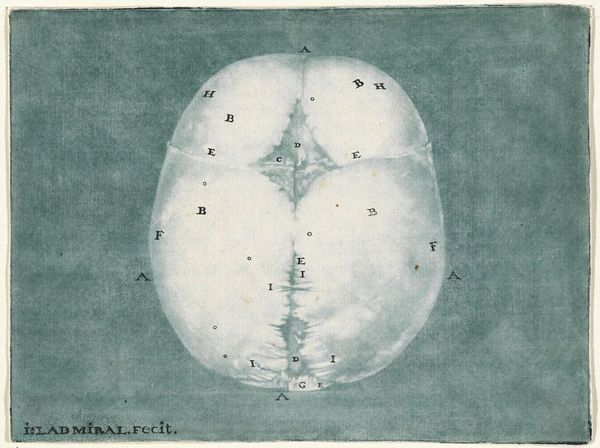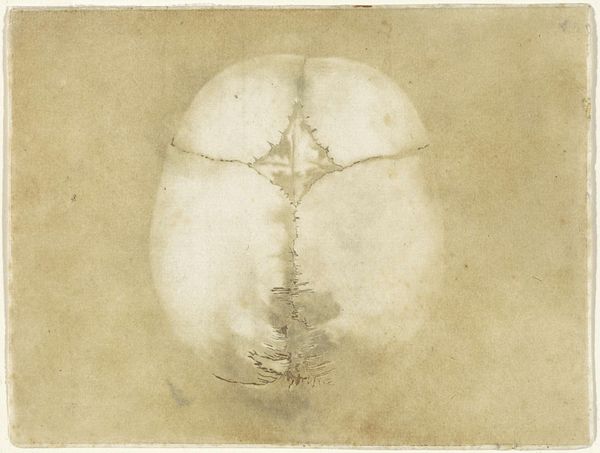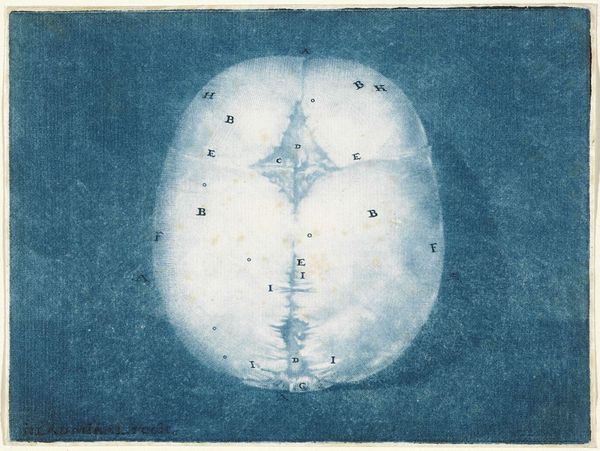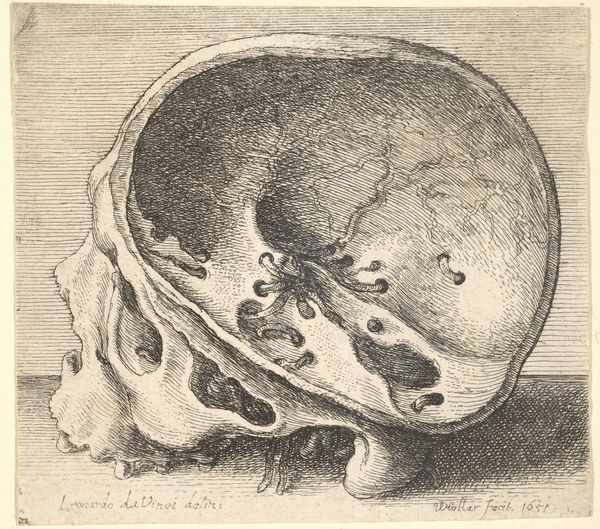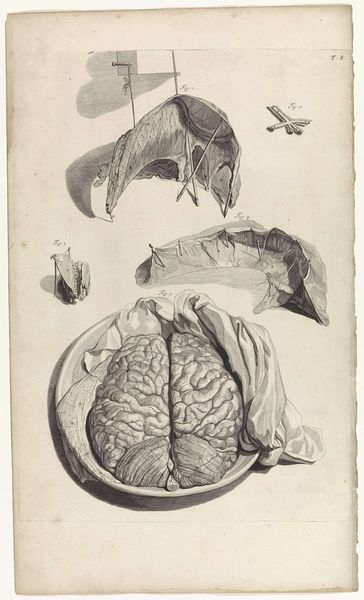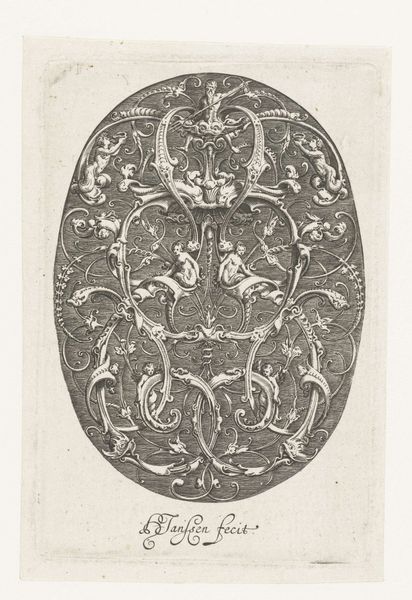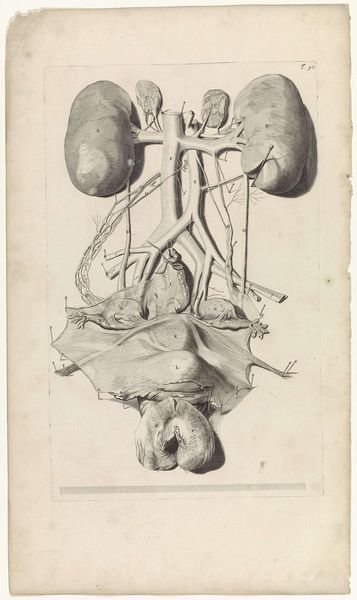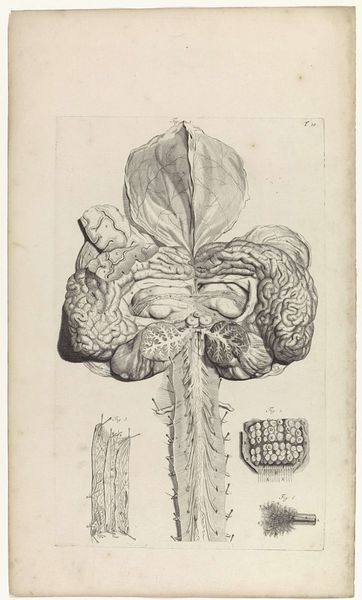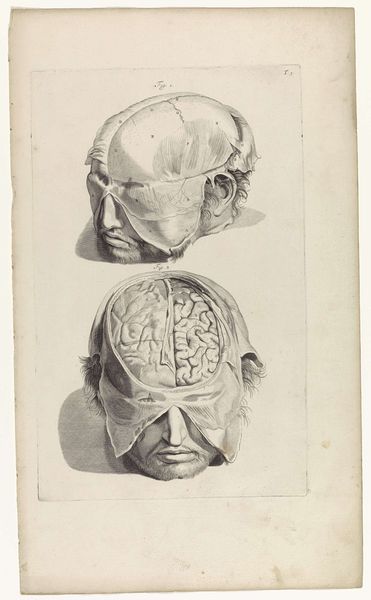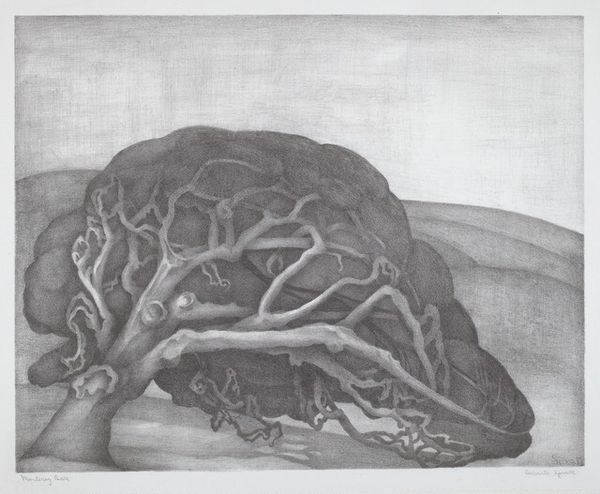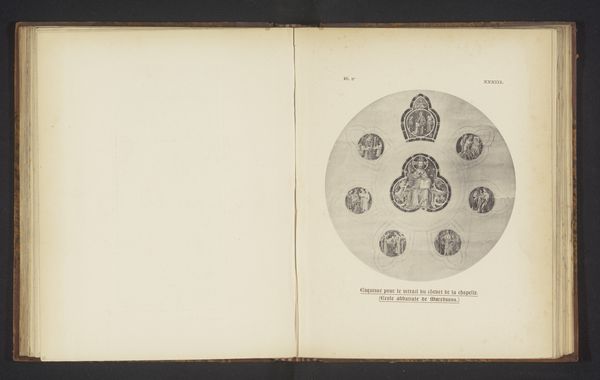
drawing, painting, watercolor, ink, pencil
#
gouache
#
drawing
#
baroque
#
painting
#
watercolor
#
ink
#
coloured pencil
#
pencil
#
watercolour illustration
#
history-painting
#
academic-art
#
watercolor
Dimensions: height 130 mm, width 174 mm
Copyright: Rijks Museum: Open Domain
This print of the brain was made by Jan l' Admiral, sometime in the 18th century. It belongs to a fascinating moment in the history of printmaking, when new reproductive technologies were being used to disseminate knowledge far and wide. The print is made using engraving, a process by which an image is incised into a metal plate, which is then inked and pressed onto paper. This print is part of a series of anatomical studies, and the engraving process lends itself well to the precise, detailed rendering of the brain’s complex structures. Look closely and you’ll see the delicate network of blood vessels, meticulously captured by the artist's hand. The making of these prints was a labor-intensive process, requiring skilled artisans to translate scientific knowledge into visual form. In doing so, they challenged traditional distinctions between art, science, and craft, contributing to a wider culture of knowledge production and exchange. This wasn’t just art, it was a technology of information.
Comments
rijksmuseum over 2 years ago
⋮
Around 1735 Jan l’Admiral printed several remarkable anatomical prints in colour, among others on commission for the celebrated physician Frederik Ruysch. For his illustrations of the cerebral membrane (the skull of an unborn child) and a human heart he experimented with ever different colours, and made various versions of them. The objective was to provide medical practitioners with the most precise and realistic images possible.
Join the conversation
Join millions of artists and users on Artera today and experience the ultimate creative platform.
